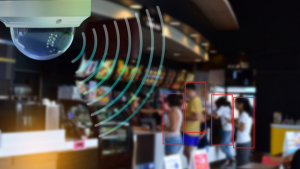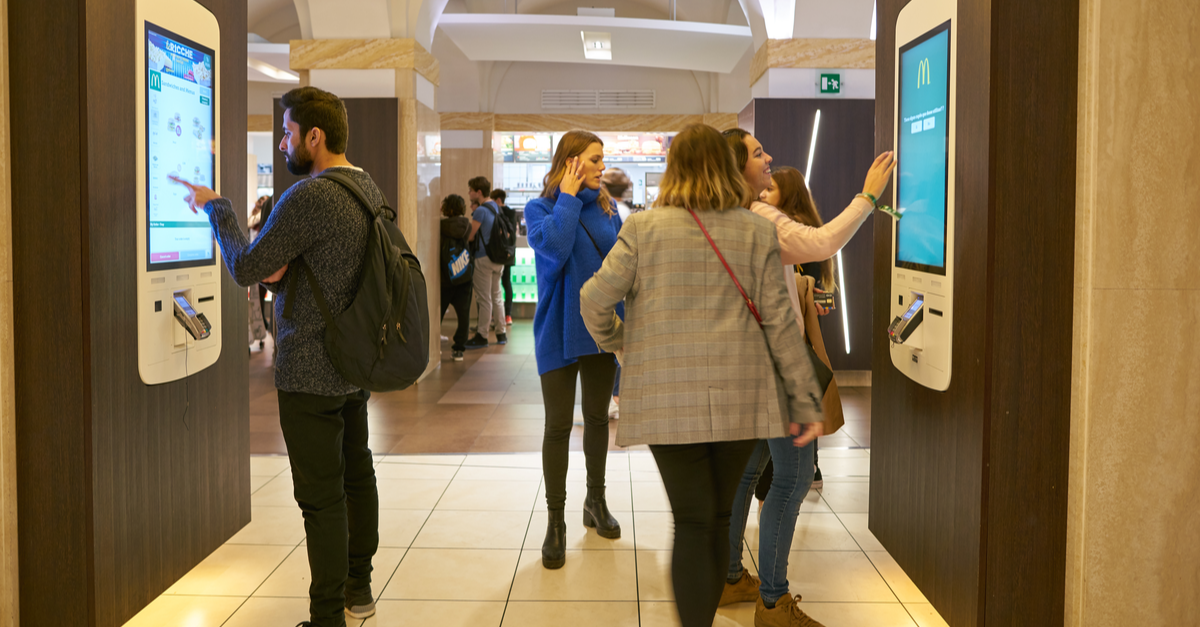3 min read
COVID-19: Gone Phishing
Estimated reading time: 2 minutes

It’s no joke that data breaches are a severe business for restaurants, both large and small (QSRs). Typically, when a large chain has a breach, it’s commonly linked to a flaw in its point-of-sale system, leading it to that point of vulnerability. COVID-19 has also created new security and safety risks for employees and customers thanks to the triggering percentage of thefts, burglaries, and even violence. At that end, it’s up to loss prevention leaders to assist restaurant chains in reevaluating their security plans while still being considerate of how to maximize many security-based solutions to shoot for additional ROI.
Consumers have recently switched to heavily adopting app-based convenience with personalized offers and quick communications to keep up with their customers. Even though restaurant owners have been relying on their apps to better converse with their consumer base, they have found that they’ve exposed those exact customers to quite a bit of fraud and risk from a digital perspective. Because this data is so heavily valued and sought after by cybercriminals, it would be of sound mind for restaurants to only collect data that will personally befit them and gain success, rather than doing so irresponsibly. Their data collection methods must be recorded to fit their industry's needs to ensure that their customers will remain safe and their relationship won’t falter.
 Fraud schemes that involve impersonating legitimate customers or creating synthetic identities based on stolen information have been on the rise since before the pandemic, but especially now in a time of uncertainty. During 2019 alone, account takeover fraud increased by 72%, with losses totaling $17B, and due to that finding, fraudsters have proven to be just as enthusiastic about the mobile shift that took place when the pandemic hit.
Fraud schemes that involve impersonating legitimate customers or creating synthetic identities based on stolen information have been on the rise since before the pandemic, but especially now in a time of uncertainty. During 2019 alone, account takeover fraud increased by 72%, with losses totaling $17B, and due to that finding, fraudsters have proven to be just as enthusiastic about the mobile shift that took place when the pandemic hit.
These scams are thriving on the mobile environment because, unfortunately, restaurant managers and owners can’t tell the difference between a real customer and an imposter. This differentiation can be difficult for businesses because if the user were an imposter, the restaurant wouldn’t have their payment/transactional logs, so how could they pit them against a new customer and a foe? QSRs are suiting up to take their security to the next level by bringing digital verification to the table. While most forms of online shopping require a sense of validation, the actual level of assurance differs from platform to platform, so perhaps one restaurant's barrier aren’t as strong and intelligent as another’s.
Caught on Camera
From a more hands-on viewpoint, preventing break-ins and theft from occurring can be a huge sigh of relief. Many QSRs actively use CCTV cameras and intrusion alarm systems to ward off intruders and alert the right people in charge, but did you know there is some hype behind video-verified alarms? A video-oriented alarm system works to give the restaurant manager/owner an additional set of eyes on-site while also giving law enforcement officers an informative play-by-play of what went down during the incident.  Combining video with investigative intrusion detection devices, such as motion detectors and fire alarms, can help security teams react to real threats, protecting those in real danger. On the other hand, though, video-surveilled notices can better identify false alarms, so penalties and fines can be avoided, along with the time and efforts of those policing such incidents.
Combining video with investigative intrusion detection devices, such as motion detectors and fire alarms, can help security teams react to real threats, protecting those in real danger. On the other hand, though, video-surveilled notices can better identify false alarms, so penalties and fines can be avoided, along with the time and efforts of those policing such incidents.
If restaurants and other hospitality-related shops are already investing their time and money into better understanding video functionalities and all the bells and whistles that come along with it, perhaps there is some good in diving in deeper. AI-based cameras are taking the extra step to differentiate customers from employees, sending fundamental alerts when people come in and out the door, to helping out with conversion numbers as well.
At the same, this solution offering is working to take a load off of security teams’ shoulders, meaning they can conduct simple searches worth of footage, without spending hours and hours of time doing this. Security and loss prevention departments can benefit from these tips to better inform their employees, customers, and everyone to keep updated on new measures, hopefully warding off criminals in person and digitally.

3 min read
Estimated reading time: 2 minutes
 Read More
Read More

6 min read
Isn’t it wild to think about how the COVID-19 Pandemic will be a distant memory one day? Though we are long from identifying with that fact, much...